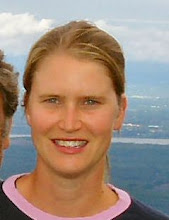Last week we began a harvest of another kind, our animal crop for the season. Barbara Kingsolver describes, in her book Animal, Vegetable, Miracle, the slaughter of their chickens and turkeys as a harvest. At first I thought of this as a euphemism until I read a bit further and contemplated what she wrote. She says, “A harvest implies planning, respect, and effort.” Our animal operation requires just as much planning and care as our vegetable crops. The turning of grass into meat is just as miraculous as the turning of a tiny seed into a cabbage or ears of sweet corn.
In thinking about what type of livestock would fit well on the farm we took a careful look at what type of environment the animal would require. In other words, what makes a pig a pig and what makes a sheep a sheep. Wild boars live in the woods where they can root with their thick snouts for insects, grubs, and roots and where they can stay out of the sun. Our pigs live in two separate wooded pastures with plenty of space so that they don’t damage the woodland. We feed them thousands of pounds of culled vegetables from the fields and a grain mix milled by a local farmer. The grain is a mix of corn and soybeans. They also eat the spent barley from a local brewery. Pigs are omnivores and require the protein found in the grain in order to be healthy and plump animals.
Our sheep and Black Angus steers are raised solely on grass. Our pastures are a mix of grasses, native plants, and clovers. These animals aren’t physiologically meant to eat grain. Their multiple stomachs turn grass and clover into bone and muscle. It is quite amazing to watch them grow over the summer months as they graze over the farm. In some people’s experience, grass-fed meat products are tough and unpleasant to eat. Traditionally grain-fed cattle and sheep have marbled and tender meat. Unfortunately, these animals are also almost always sick from eating too much grain. Our steaks are tender and marbled because we carefully manage our pastures to include a rich mix of clover. The clover is high in protein in a form the animals can digest.
This year we also raised a few turkeys on pasture. We feed them organic grain from a feed company in Vermont. They also enjoy clover and pecking through the pasture for insects. They have equated humans with food and are quite tame. The whole flock follows us around the pasture when we refill their feeders. We have two breeds, the standard Large White, which is – you won't believe it – large and white, and the Broad-Breasted Bronze, which is a brown turkey with iridescent feathers and a huge breast. Broad Breasted Bronze toms (male turkeys) puff out their feathers and show off their tails just like the classic Thanksgiving motif. We only have 50 birds, so we can’t supply too many of you for your holiday meals. We are going to harvest them soon. If you are interested in a turkey we will ask you to pick it up at the farm on the day of the harvest and freeze it on your own. We don’t have enough freezer space for 50 birds at this point.
We enjoy raising animals and they are an important part of the farm. Their manure returns nutrients to the soil, their grazing improves the pasture and hay fields, and they inhabit parts of the farm that otherwise become overgrown with sumac and rose bushes. They add life to the farm in ways vegetables just aren’t able to. They also give us the opportunity to provide you with meat products that are raised sustainably and with respect. It isn’t easy to harvest our animals, but I don’t think it should be. Not all of you eat meat – in fact I don’t myself. But it is important to me that we provide an alternative to the meat products found in the grocery store. By making the choice to eat meat raised on a small farm where a pig can be a pig, you say “no” to the confinement operations and large meat-packing plants where the quality of life for the animals and workers is not considered. This choice returns the raising and harvesting of meat into the hands of farmers and butchers who are careful and considerate in their work.
~Jody
Subscribe to:
Post Comments (Atom)




No comments:
Post a Comment